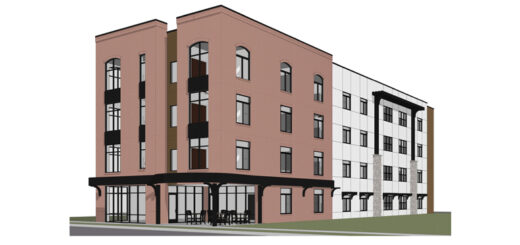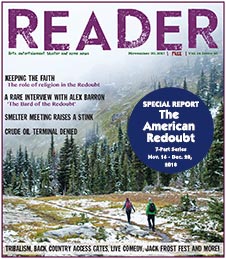BoCo moves forward with $8.7 million solid waste loan
By Lyndsie Kiebert
Reader Staff
Bonner County Solid Waste Director Bob Howard received official approval from the board of commissioners June 1 to ratify the signature and submission of a loan application to the U.S. Department of Agriculture for $8.7 million to fund an update of the county’s solid waste facilities.
The request went over without much fuss during the board’s regular Tuesday business meeting, due in part to the extensive community discussion that’s already taken place surrounding the loan. Bonner County voters had the chance to approve or deny the county’s ability to apply for the loan on the May 18 ballot. Voters affirmed the special revenue bond, with about 61% voting in favor and 39% against the measure.
The loan is the latest step in a multi-year effort to bring the county’s solid waste infrastructure into the 21st century. For instance, the undersized tipping floor at the Colburn waste transfer site — where all county trash is sorted and shipped out — is 25 years old, despite being built with a “five-year life expectancy,” according to Howard. Such outdated facilities, combined with a rapidly increasing local population, have made the issue more pressing than ever, according to commissioners.
Aside from building a new tipping floor, the $8.7 million will be used to pay for a complete overhaul of the Colburn site, as well as needed improvements to three other waste collection sites: Idaho Hill, Dickensheet and Dufort. All of these improvements come from suggestions found in the Bonner County Solid Waste 10-Year Capital Improvements Plan — a guide put forth by outside consultant Great West Engineering in 2019.
The action will not result in a cost increase for taxpayers, seeing as commissioners raised solid waste fees by 62% in September 2019 in preparation for applying for the loan.
According to Commissioner Dan McDonald, without that fee increase, the county would not have been able to receive the loan. At the previous rate, the county was “struggling to keep up with operating costs,” he said at an April 20 hearing on the ballot measure.









 Coming up this week! Don’t miss Live Music, the Summer Sampler, the Art Party, Monarch Grind, the Sandpoint Renaissance Faire, and more! See the full list of events in the
Coming up this week! Don’t miss Live Music, the Summer Sampler, the Art Party, Monarch Grind, the Sandpoint Renaissance Faire, and more! See the full list of events in the 